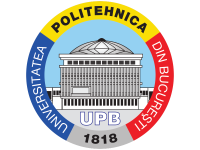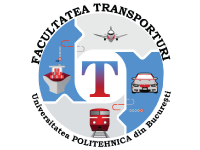


Goals
INNOVATIVE TECHNOLOGICAL PROJECT FOR LESS DEVELOPED REGIONS (Without Bucharest-Ilfov)
Priority Axis
Research, technological development and innovation (RDI) in support of economic competitiveness and business development
operation
Stimulating the demand of enterprises for innovation through RDI projects carried out by enterprises individually or in partnership with R&D institutes and universities, in order to innovate processes and products in economic sectors that have growth potential
State aid scheme
FINANCING OF RESEARCH-DEVELOPMENT AND INNOVATION ACTIVITIES (RDI) AND R&D INVESTMENTS THROUGH THE COMPETITIVENESS OPERATIONAL PROGRAM (COP)
SmartHub
SmartHub is a device (Hardware and Software) that will allow the implementation of various services specific to a smart city. The main research directions will be: development and extension of system architecture, development of hybrid solutions, development of algorithms for the provision of intelligent services, implementation of data mining and Big Data solutions with minimal hardware and software resources, development of intelligent sensors (these will be connect to Smart Hub), the development of new data structures for fast processing of data purchased from sensors, the development of video processing algorithms for the component of increasing citizen safety.
From an economic point of view, the project will propose two hub-type products accompanied by services and hardware and software configurations adapted to user requirements. Four major business directions will be developed: the production of hardware devices, the implementation of algorithms and the development of software solutions, the provision of intelligent services based on the support provided by Smart Hub and the development of components that can be connected to smart hubs and can create various functionalities.

Smart Economy
Although with many areas of applicability, the Smart Hub considers the reporting to the requirements of a Smart City, urban logistics and the distribution of goods and products having a considerable impact in the socio-economic space in which it is made. Thus the importance of urban freight transport is given by:
transport costs associated with the logistics cost which have a significant influence on economic efficiency,
servicing and maintaining industrial and commercial activities, which are essential for the proper functioning of the economy,
human resources are needed to carry out the transport and thus the distribution activity offers new jobs,
through its performance it influences the competitiveness of the industries in the territory,
supports the lifestyle of the community.
Urban logistics and urban freight transport are essential to the economy, but at the same time present many environmental challenges, impact on health and well-being, road safety and accidents, motivation and social satisfaction. Urban areas need to provide residents with an increased quality of life that includes, among other things, timely access to goods and services.
Smart City Logistics proposes a comprehensive framework that integrates key elements and major perspectives, including key processes, the information component, social, economic and environmental policies and regulations.

Ease of communication with customers

Providing information for business

Support in the relationship with the local administration
Smart Mobility
“Mobility as a service” or “mobility service” (MaaS) is a practical development of “collaborative transport”, which involves the purchase of mobility services as a package based on customer needs instead of just the means of transport. The idea behind SMART HUB is the existence of an integrated and continuous service provided through a digital end-user interface, a service in which different sectors of the market are encouraged to cooperate and interconnect in order to function as an ecosystem.
Pedestrian assistance
Passenger assistance - public transport
Support for public transport management
Mobility planning support
Support for micromobility systems

Intelligent Administration
Smart governance through smart governance seeks to provide the smart city with a full range of eGovernment services, through a strong IT&C infrastructure and public-private partnerships that enable it to achieve its goals, open governance, transparency, etc.

Smart Environment
The use of renewable energy, the existence of IT&C controlled energy networks, “green” buildings, pollution control, water quality, air quality, etc. are desideratums of both sustainable development and the Smart City. Among them, the Smart Hub aims to monitor and inform both citizens and authorities about emissions of air pollutants and their concentrations.

Smart lifestyle
Cultural infrastructure, accessible, efficient health systems adapted to the needs of the community, individual safety, quality of life, educational facilities, tourist attractiveness, social cohesion, all can be achieved by implementing Smart Hub functions such as components of the smart economy, mobility smart and smart lighting.

Smart citizens
Smart citizens – high level of qualification, affinity for lifelong learning, social and ethnic plurality, flexibility, creativity, open minds and civic participation – citizen involvement in solving community problems.
In terms of these aspects, the Smart Hub aims that through the functions made available to users, they acquire the attributes of smart people, giving them information, flexibility in making choices of different attributes of mobility and the possibility of civic participation to comes to meet the needs, in a continuous change. Many of the functions of the Smart Hub, in this case those related to the economy, mobility, environment and administration, are meant to transform citizens into smart people and are found in the following paragraphs.


